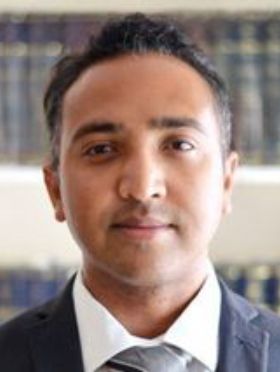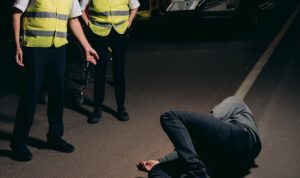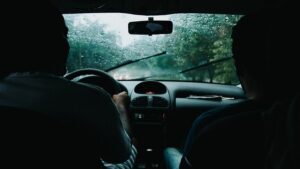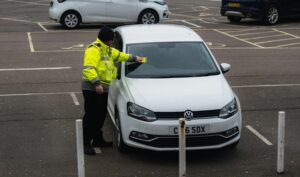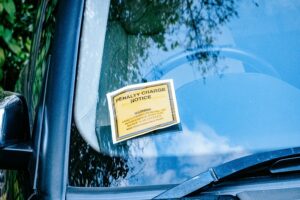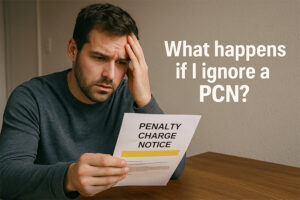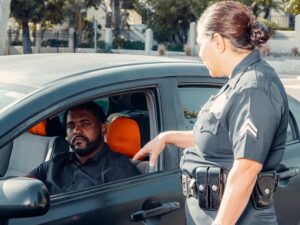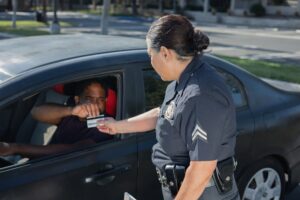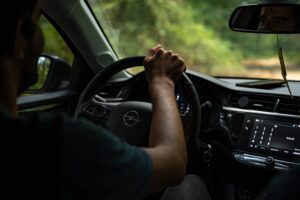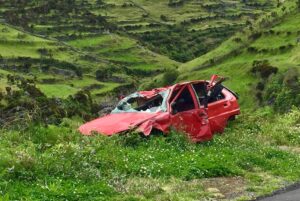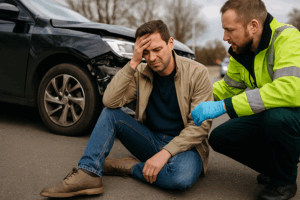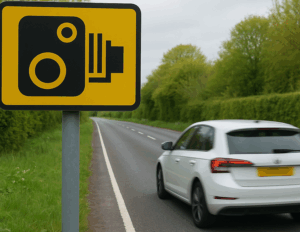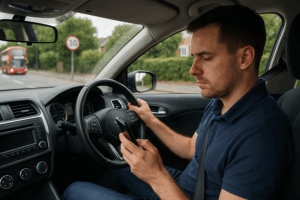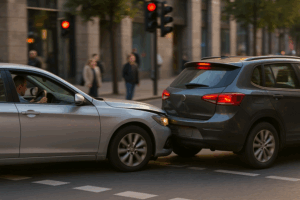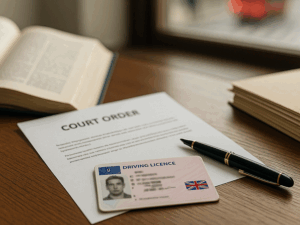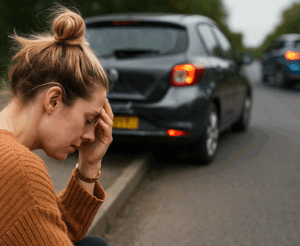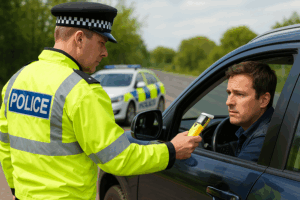Drink driving offences: legal risks, penalty and sentencing

That glass of wine with dinner seemed harmless three hours ago. Now you’re staring at a breathalyser, wondering if you’ll lose your driving licence. What nobody tells you: the UK drink drive limit units aren’t just numbers; they’re the difference between driving home and facing a ban that could last months. While you’re googling “caught drink driving can I still drive until court” at 2am, the reality hits hard. Will you be able to drive your children to school? Can you still get to work? The penalty affects every aspect of daily life, from skyrocketing insurance premiums to explaining a criminal record on job applications. When facing a drink driving charge, specialist criminal law representation in driving and motoring offences can significantly impact your case outcome.
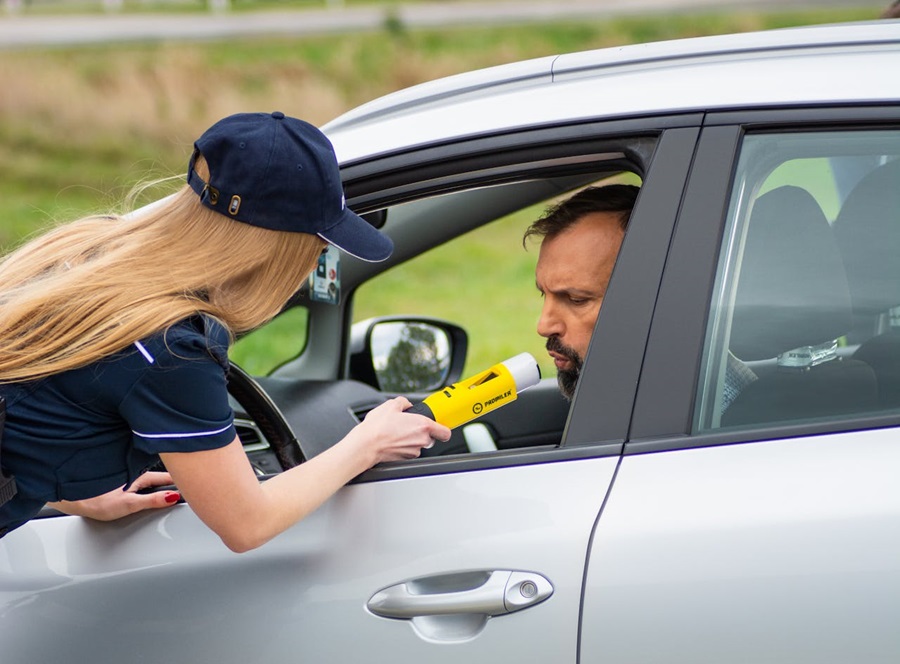
Key Takeaway: Can you still drive after being arrested for drink driving?
Discover how to protect your licence and minimise the consequences of drink driving charges.
Drink driving limit UK: Legal alcohol limits and drink driving laws explained
Drink driving is the criminal offence of operating any motor vehicle while your blood alcohol concentration exceeds the legal limits established by UK laws:
- England, Wales & Northern Ireland limits: The UK drink drive limit units stand at 80 milligrams of alcohol per 100ml of blood, 35 micrograms per 100ml of breath, or 107 milligrams per 100ml of urine. This alcohol limit UK driving has remained unchanged since 1967, despite calls for reduction to match European standards and ongoing debates about UK drink driving restrictions.
- Scotland’s reduced limits: Since December 2014, Scotland enforces stricter limits at 50mg per 100ml of blood, 22 micrograms per 100ml of breath, or 67mg per 100ml of urine. This brings Scottish laws in line with most European countries but creates confusion for cross-border drivers who may face unexpected conviction.
The offence extends far beyond simply driving while intoxicated:
- “In charge” offence provisions: Beyond actual driving, you commit a serious offence by being “in charge” of a vehicle while over the limit. This includes sitting in the driver’s seat with keys, sleeping in your car after drinking, or supervising a learner driver while intoxicated; all illegal acts carrying potential drink driving ban consequences.
- Attempting to drive charges: Moving your vehicle even a few meters, starting the engine, or preparing to drive while over the limit constitutes driving under the influence UK regardless of actual journey completion, making it illegal from the moment you take control.
Personal alcohol tolerance remains impossible to predict accurately:
- No safe drinking formula: How much can you drink before driving cannot be calculated reliably through any calculator. Personal factors including body weight, food intake, medication, stress levels, and individual metabolism mean any online calculator provides dangerous false security that could result in conviction.
- Professional driver implications: Some employers impose zero-tolerance policies, and certain professional licences require lower alcohol thresholds than standard motoring laws, with insurance implications for commercial drivers.
What happens when you’re caught drink driving: Police procedures and court process
Being caught drink driving triggers an immediate legal process that begins the moment police suspect you’re over the limit:
- Roadside testing procedures: Police can stop any driver and request a breath test without needing reasonable suspicion. If you fail the roadside screening, you’ll be arrested and taken to the police station for evidential breath, blood, or urine tests. Refusing any test is an offence carrying identical penalties to being over the limit.
- Police station procedures: At the station, you’ll provide two breath samples on an approved device; the lower reading becomes your official result. You have the right to replace this with a blood or urine sample if your reading is within 40 micrograms of the limit, though this rarely benefits defendants.
- Licence implications: Police will confiscate your licence immediately and issue a temporary driving ban until your court hearing. You cannot legally drive from the moment of arrest, regardless of when your court date is scheduled.
The court process determines your penalties:
- Magistrates court sentencing: Most drink driving cases appear in magistrates court within 6-8 weeks. Sentencing guidelines mandate minimum 12-month bans for first offences, with higher readings or aggravating factors increasing penalties substantially.
- Guilty plea advantages: Early guilty pleas can reduce bans by up to 25%, while drink drive rehabilitation courses may cut disqualification periods by up to three months, though courts aren’t obligated to offer these reductions.
Drink driving penalties: Bans, fines and long-term consequences
Drink driving penalties extend far beyond the courtroom, creating ripple effects that impact your finances, employment prospects, and daily life for years. The conviction marks the beginning of long-term consequences that affect everything from insurance costs to career opportunities.
- Standard ban periods and fines: First time drink driving offence UK carries a minimum 12-month driving ban, with fines up to £5,000 and potential prison sentences up to 6 months. Ban lengths increase with alcohol readings. Expect 17-22 months for mid-range readings and 23-28 months for high readings above 120 micrograms.
- Repeat offender escalation: Second offences within 10 years trigger minimum 3-year bans, while third offences result in automatic 3-year disqualifications with substantially higher fines and likely imprisonment. Courts show little leniency for persistent offenders.
- Financial penalties breakdown: Beyond court fines averaging £200-£800, you’ll face prosecution costs (£85), victim surcharge fees (£34), and potential legal representation costs exceeding £2,000 for contested cases.
Insurance and employment consequences prove particularly damaging:
- Insurance premium explosions: Insurance companies classify drink driving convictions as high-risk, typically increasing premiums by 200-500%. Many insurers refuse cover entirely, forcing drivers toward specialist providers charging £3,000-£8,000 annually for basic policies.
- Employment implications: Criminal records containing drink driving convictions must be declared on most job applications, particularly affecting roles involving driving, childcare, finance, or positions requiring enhanced DBS checks.
- Conviction duration impact: How long does a drink driving conviction stay on your record? Criminal records retain drink driving convictions indefinitely, though they become “spent” after 5 years under rehabilitation legislation. DVLA records show convictions for 11 years, affecting insurance premiums throughout this period.
Do I need a solicitor for a drink driving charge?
Drink driving charges carry life-changing consequences that justify professional legal representation, regardless of whether you believe the case is straightforward:
- Technical defense identification: Specialist drink driving solicitors can challenge breath test calibration, police procedural errors, medical conditions affecting readings, and timing issues between driving and testing. These technical defences are invisible to unrepresented defendants but can result in case dismissals.
- Sentencing mitigation expertise: Experienced solicitors present compelling mitigation that can reduce ban periods by months, avoid prison sentences, and minimise fines. They understand which personal circumstances courts consider relevant and how to present them effectively for maximum impact.
- Procedural knowledge advantage: DUI UK cases involve strict legal procedures. Solicitors ensure police followed correct arrest protocols, evidential procedures, and disclosure requirements. Procedural failures can invalidate entire cases.
Remember:
FAQs
- When did drink driving become illegal UK? The Road Traffic Act 1930 first prohibited driving under the influence, but measurable limits weren’t introduced until 1967, establishing the framework for modern motoring prosecutions.
- How do I report drink driving safely? Call 999 if the driver poses immediate danger, or 101 for non-emergency situations. Provide the vehicle registration, location, direction of travel, and driver description. You can also report drink driving anonymously through Crimestoppers on 0800 555 111.
- Can I refuse a roadside breath test? Refusing a roadside breath test is a criminal offence carrying identical penalties to drink driving itself, including automatic bans, fines up to £2,500, and a criminal record.
Drink driving convictions create lasting consequences affecting your licence, insurance, employment, and criminal record. Professional legal representation isn’t optional when facing charges that impact your future for years; specialist solicitors provide essential expertise for navigating complex motoring law and minimising life-changing penalties.
Don’t face drink driving charges alone!
Qredible’s network of specialist drink driving solicitors offers consultation to protect your licence, minimise penalties, and preserve your career prospects.
KEY TAKEAWAYS
- Drink driving laws vary across the UK, with Scotland enforcing stricter alcohol limits than England and Wales, while the offence extends beyond driving to include being “in charge” of a vehicle while intoxicated.
- Being caught drink driving results in immediate licence confiscation and court proceedings leading to minimum 12-month bans, substantial fines, and criminal records that affect insurance premiums and employment prospects for years.
- Professional legal representation from specialist drink driving solicitors is essential for identifying technical defences, reducing penalties, and minimising long-term consequences of convictions.
Articles Sources
- gov.uk - https://www.gov.uk/drink-driving-penalties
- sentencingcouncil.org.uk - https://www.sentencingcouncil.org.uk/outlines/drink-driving/
- drinkaware.co.uk - https://www.drinkaware.co.uk/facts/information-about-alcohol/alcohol-and-the-law/drink-driving/drink-driving-penalties
Do you need a solicitor?
Find a solicitor on Qredible in just a few easy steps






